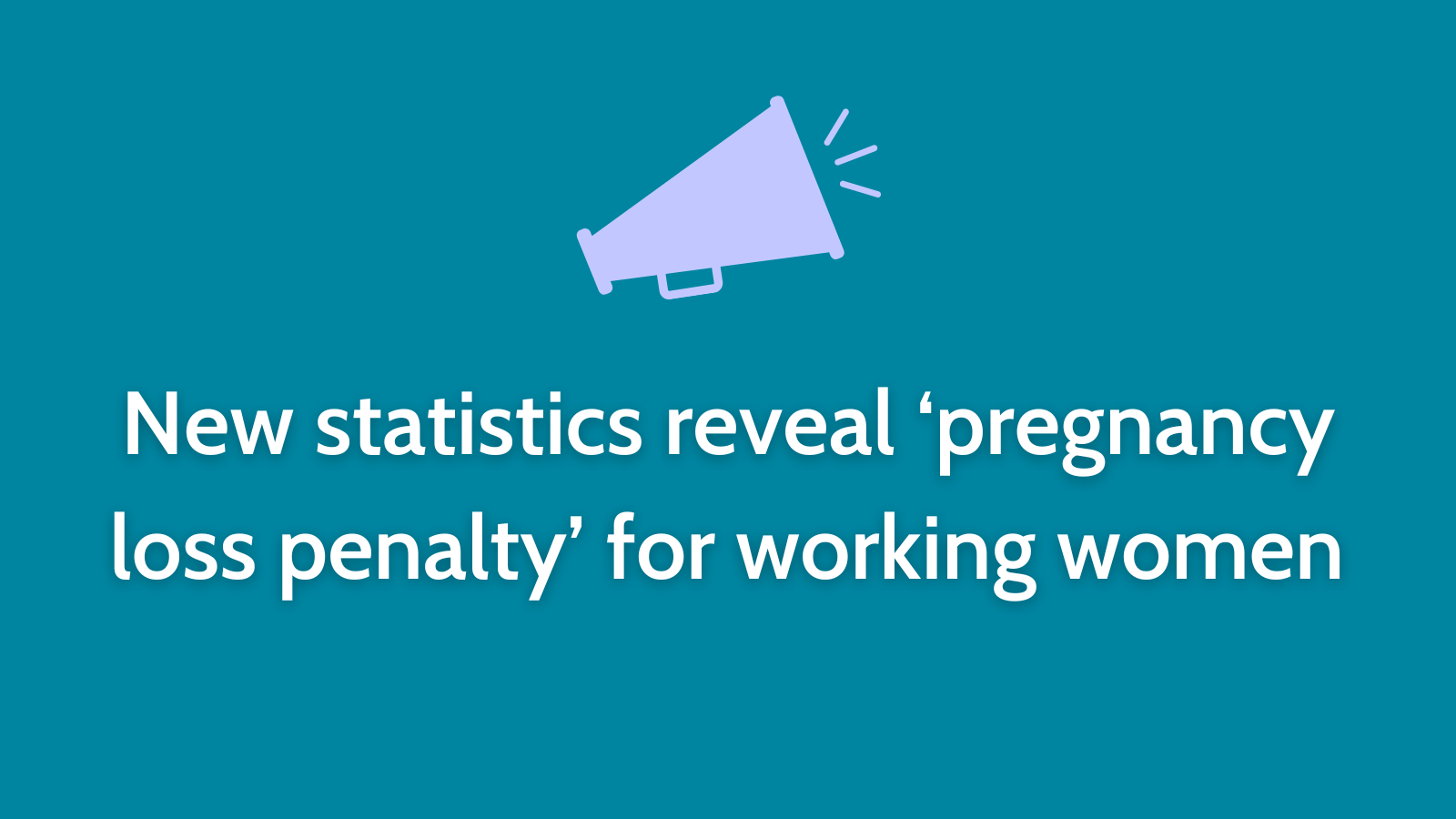New statistics reveal ‘pregnancy loss penalty’ for working women
11th June 2025

Research released today by the Office for National Statistics (ONS), highlights a significant impact on the earnings of women who experience pregnancy loss.
The data shows that women who have had a miscarriage or ectopic pregnancy have a total loss of earnings of up to £4,000 when compared with their contemporaries.
The research explores changes in monthly earnings and employment following a range of ‘adverse pregnancy events’, including miscarriages, ectopic pregnancies*, stillbirths and neonatal deaths, in England between April 2014 and December 2022.
Key findings include:
- A missed miscarriage led to a total earnings loss of £3,511 over five years, with reduced likelihood of employment for up to 1.5 years after the event.
- A spontaneous miscarriage was associated with a £4,101 drop in earnings over the same period, with employment probability reduced for 1.5 years.
- An ectopic pregnancy resulted in earnings losses of £2,040 over 3.5 years and a similar short-term reduction in employment likelihood.
- Earnings were lower for at least five years following a stillbirth, with a total loss of £13,581 over this period. The probability of employment was decreased for two years, with a maximum reduction of 4.8% in the quarter after the event.
- For women who experienced a neonatal death, earnings were lower for almost five years, with a total loss of £12,441 in this period. The probability of employment was decreased for two years, with a maximum reduction of 4.8% in the quarter after the event.
Vicki Robinson, Chief Executive of the Miscarriage Association, commented:
“While the findings are not surprising, they are deeply concerning. This new data confirms what many in our community already know, that pregnancy loss can have a lasting impact across all areas of a woman’s life, including her finances and employment.
“We’re already familiar with the unacceptable motherhood penalty. Now we are seeing evidence of a pregnancy loss penalty too.
“The stats clearly show the reduction in income is not purely due to time taken off to recover from the physical impact of pregnancy loss, but a sustained decrease in salary in the five years that follow.
“We need to understand more about why this is the case, and there may be varied reasons.
“There is, however, a very real likelihood that for some women, once it is known they have been pregnant, they have faced discrimination in the workplace, because their employer is expecting them to go off on maternity at some future point. And so, they lose out on promotions or other opportunities, while their colleagues move ahead.
“We’ve also heard from women who have had excellent support at work following their loss but are then reluctant to change employers or seek better compensated roles elsewhere for fear of losing that support if they unfortunately experience another loss.
“Whatever the root cause or causes, the need for greater understanding and support at work is clear. Too many people are going through pregnancy loss without the recognition, protection or help they deserve.”
One of the Miscarriage Association’s lived experience volunteers knows all too well about the pregnancy loss penalty. She said:
“After two miscarriages in 2020, I had no idea what support or rights I was entitled to. My employer was supportive and allowed me to take paid time off. Following the birth of my son, we unfortunately experienced a further four pregnancy losses.
“The existence of a paid pregnancy loss policy is one of the reasons that I have stayed with my employer for as long as I have, giving up career progression opportunities. With my obstetric history, I couldn’t risk moving company and ending up in a company where I wouldn’t get the same support.”
Emma Sharland, Principal Research Officer at the ONS, said:
“These events can have a devastating emotional and health impact on women who experience them and their families. For the first time, we have looked to understand the financial impact they can also have.
“We found all these events caused a decrease in earnings, with some leading to a total loss of almost £14,000 in earnings over five years. This financial impact persisted, and those who experienced some of these events never saw their pay recover during the study period.”
This publication is part of a wider programme of work by the ONS, looking at the effects of health conditions and experiences on income and employment. The analysis uses de-identified data from the NHS, HMRC and Census to understand the long-term economic impact of adverse pregnancy outcomes.
*Because of the infrequency of molar pregnancy, it was not possible to provide accurate statistical data showing the impact on women’s earnings for that specific pregnancy loss experience, but it is likely it follows a similar pattern to miscarriage.

